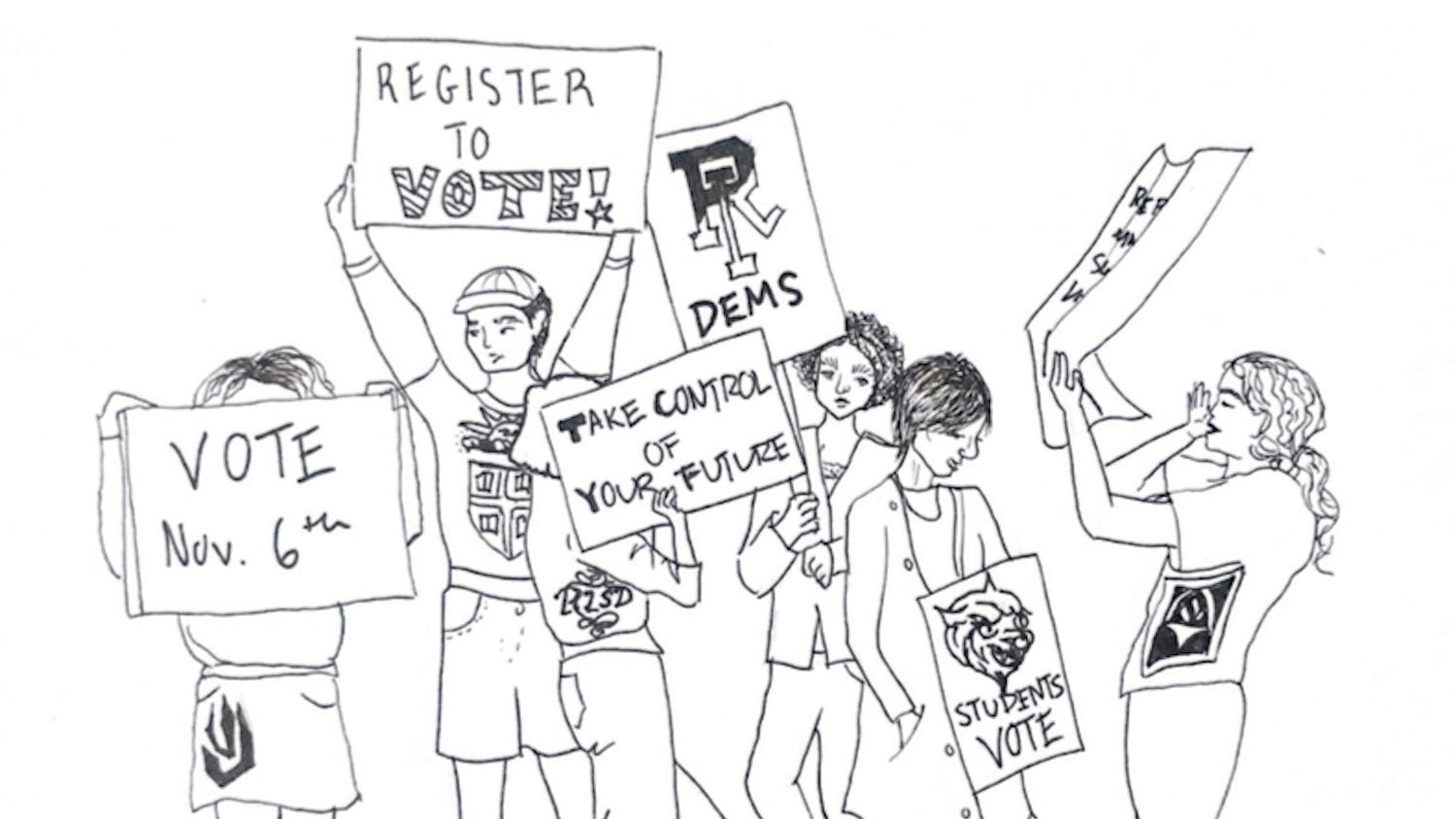HIV prevention must be a top priority for the Rhode Island community, said Thomas Bertrand, executive director of the AIDS Project Rhode Island, to about 40 guests Friday at the HIV Prevention Coalition's State House World AIDS Day Event.
The event hosted a series of speakers addressing HIV and AIDS prevention and aimed "to recognize Rhode Island's efforts to reduce HIV infection, share concerns regarding HIV prevention work moving forward and increase visibility of HIV risk and need for prevention/education services in Rhode Island," according to the official agenda.
There are about 100 new cases of HIV every year in Rhode Island, Bertrand said when opening the two-hour event. The coalition of 22 organizations, which was founded in the spring, holds regular meetings to help fight HIV infections through primary prevention efforts.
Many of the speakers emphasized one of the largest obstacles facing the coalition - as of Jan. 1, 2013, all state and federal funding for community-based organizations for HIV education and prevention activities will be revoked.
The best way to "honor the legacy" of those who have died of HIV/AIDS is "by working to eradicate the disease," Gov. Lincoln Chafee '75 P'14 said in his remarks.
The HIV infection rate in Rhode Island has shown signs of improvement, falling by 16 percent from 2000 to 2010, according to statistics from the Rhode Island Department of Health. There have been significant declines in new HIV infections in women and injecting-drug users, and mother-child transmission rates have fallen to zero.
While Rhode Island has witnessed considerable success in fighting HIV/AIDS in the past 10 years, challenges still lie ahead, said Wendy Hadley, assistant professor of psychiatry and human behavior at Alpert Medical School, to attendees. Incidences of new HIV infections remain higher among Hispanics and African-Americans compared to whites, and rates are growing among gay and bisexual men, she said.
Both Hadley and Bertrand suggested several ways to further reduce HIV infection rates, including providing free testing and treatment and making information about the disease accessible to all people, especially young adults.
In addition to lobbying for increased government funding to fight HIV/AIDS, community organizations should "focus prevention efforts on groups in which HIV/AIDS is most dramatically at play, including men who have sex with men," said Ben Gellman '14, an event attendee.
Comparatively, Massachusetts has waged a tougher war against the disease, Bertrand said. In recent years, "Massachusetts has invested about five times more per capita than Rhode Island in HIV prevention," he noted. Its HIV infections have fallen by about 46 percent since 2000, a rate almost triple Rhode Island's. Bertrand said it is vital that officials and legislators at the state and national levels make HIV prevention a priority.
Community member Darren Wells, who has been living with HIV for 13 years, spoke about the support many member organizations of the coalition provided him as he learned to cope with his disease. He said he now works as an HIV/AIDS test counselor to "pay it forward" after so many people have helped him.
World AIDS Day has been observed Dec. 1 every year since 1988. On this day, people around the world come together in the fight against HIV and remember loved ones lost to the disease. HIV - a disease that attacks the human immune system and is a precursor to AIDS - was first detected in the United States in 1981. According to the 2012 UNAIDS World AIDS Day Report, 1.7 million people worldwide suffered AIDS-related deaths in 2011, and over 30 million are infected with HIV.
Wells attributed much of his success in his battle with HIV to the wide support he received from others. "I'm not here because one person reached out to me," he said, "but because a community reached out to me."




